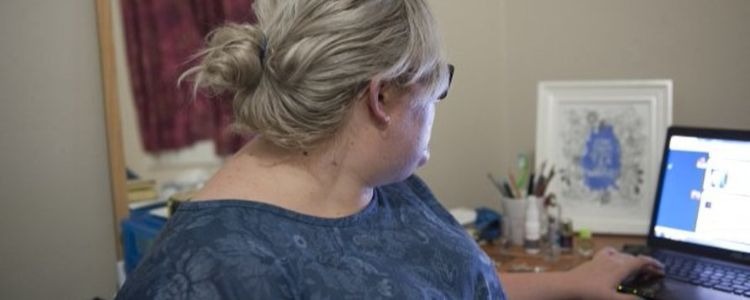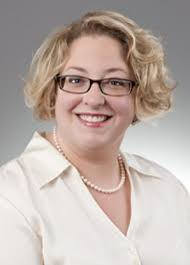For many people, dieting begins with a promise of a new life with better health and a feeling of euphoric lightness. We learn implicitly and explicitly that we are more desirable when thin and that our lifestyle should be directed toward keeping the body within a very narrow definition of an acceptable and healthy-sized body.
My own eating disorder story is long and complicated; it began early in childhood alongside hunger, weight biases, and shame. It quickly escalated to dieting, lifestyle changes, and healthy eating; all of which almost killed me and continues to plague my health. Years of weight cycling, binge eating disorder, and atypical anorexia prompted by the desire and direction of others to diet did a number on every part of my body that never has been or will be thin.
I am happy to share a piece of my story with you for National Eating Disorders Awareness Week from a soon-to-be-released book Binge Eating Disorder: The Journey to Recovery and Beyond that I co-authored with Amy Pershing, ACSW, LMSW. By sharing this vignette, I am hopeful that just one person will recognize the harm that dieting can do to anyone, much less a child, and dedicate themselves to change.
Content warning: mentions of size, weight, and eating disordered behaviors
The pit in my stomach began first thing in the morning on the day of my yearly doctor’s appointment and continued throughout the day. I kept hoping that when I stepped on the scale in the doctor’s office I would be several pounds lighter. I worked hard to diet since Mom and Dad shared their concerns about my weight. I skipped breakfast, no snacks, and kept my meals to one helping. Hunger gnawed at me all the time, but I did everything I could to ignore it. I checked how I looked in the mirror all the time, too. If my stomach kept getting flatter, then I would be motivated to keep going.
Mom picked me up after school and I said barely a word to her in the car. The doctor’s visit began with the nurse taking my height and weight.
“It looks like you have gained 3 pounds since your last visit,” she said in a matter-of-fact tone.
I turned around to look at Mom, but she had already walked down the hall to the examination room. I followed her and sat down on a hard, plastic chair to wait for the doctor. An awkward silence sat between us. I understood she genuinely worried about me. I also knew there was something beyond how much I ate and what I weighed that made this difficult for Mom. I wanted to somehow lessen her worry. At the time, I could not conceive she struggled with an eating disorder that would remain hidden for decades, nor how closely I followed in her footsteps.
The doctor came in to the examination room and reviewed my charts.
“Are you ready to lose weight?” he asked me. “Are you willing to help her?” he asked mom.
“Of course!” we both answered.
After a quick examination and some questions, he sat down on his wheeled chair and scooted it toward me. He put both hands on my knees and looked directly in to my eyes. I felt increasingly uncomfortable but held his gaze. “Chevese, we are going to nip this problem in the bud. You want to be thin, right?”
“Yes.” I answered. Why was he asking me this question? Of course, I want to be thin. Who in their right mind would want to be fat?
As he left the room, I felt a wave of calm come over me and I looked at my mom. She and I were both smiling, and I knew she felt the same confidence in whatever solution the doctor would recommend.
The doctor came back in to the room after several minutes with a small white envelope and a stack of papers. He sat on his wheeled stool and scooted once again to my side. He turned the front of the envelope toward me, so I could see the directions he wrote in his illegible handwriting.
“You will take one of these pills in the morning before breakfast and another in the evening before dinner. They will help curb your appetite, so you will eat less, and it is very important that you remember to take them every day. This will significantly cut the number of calories you consume daily, and we should see the fat melt away,” he explained.
Two weeks later, I would find myself throwing up at a friend’s house after bingeing on food that I stole from the kitchen in the night.
Earlier that evening, I decided not to take my “diet” pill and ate dinner after barely eating for days. The pizza and chips tasted better than any food I remembered, and I could think of nothing else for the remainder of the evening. I knew if I did not find more food, I would not be able to sleep. My mind focused on food and I did not enjoy the usual sleepover activities. I told my friend I did not feel good and needed to go to bed. Once I was sure the household was asleep, I snuck in to the kitchen and ate an entire box of ice cream bars.
Within minutes of crawling back in to my sleeping bag, I could feel my mouth begin to water and my stomach rumble. I ran to the bathroom just in time for my binge to make its way into the toilet. I sat on the floor and cried. I was 12 but wanted my mom to be there to comfort me as she always did when I was sick. No one was there for me that night and I felt lonely and ashamed…
For recovery resources and treatment options, please visit our help and support page. If you or someone you know is struggling with an eating disorder, call ANAD’s Helpline at: (888) 375-7767 or the National Alliance of Eating Disorders Helpline at: (866) 662-1235.
If you are thinking about suicide, call or text the National Suicide Prevention Lifeline at 988. In crisis situations, text “NEDA” to 741741 to be connected with a trained volunteer from the Crisis Text Line.
Chevese Turner is the Founder, President & CEO of the Binge Eating Disorder Association (BEDA), a national organization promoting the pursuit of healing and well-being for those affected by Binge Eating Disorder (BED). Turner’s expertise is in non-profit management, healthcare policy, and patient advocacy. She is an award-winning activist and speaks regularly about her journey with BED, weight stigma, and the need for recognition of and access to care for those with eating disorders.
Image: Isaac Brown, Stocky Bodies






